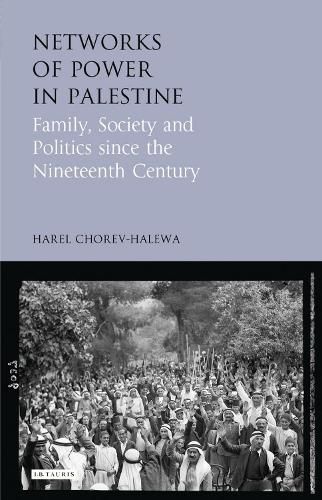Readings Newsletter
Become a Readings Member to make your shopping experience even easier.
Sign in or sign up for free!
You’re not far away from qualifying for FREE standard shipping within Australia
You’ve qualified for FREE standard shipping within Australia
The cart is loading…






Informal networks are an elusive and hidden factor in every society. In the Middle East, the Arab Spring recently highlighted their power and scope from Iraq to Morocco, exposing how family and clan networks wield influence behind institutional facades. While many studies of Middle Eastern societies solely analyse formal structures and official governing bodies, this book illuminates longstanding informal social systems by examining the sociopolitical history of the Palestinian highlands, known from 1950 as the West Bank. By studying family-based networks in cities like Jerusalem, Nablus and Hebron, Harel Chorev-Halewa shows how their influence has receded more slowly and less dramatically in recent generations than is commonly believed. He also connects individual elite families to the broader landscape of informal networks, comprising inter-familial alliances, collective economic systems, Sufi orders and customary law - all of which make up the unseen ‘familial order.’ Unfolding chronologically, this book spans a period of immense change from the Late Ottoman period to the present day, asking: How did Palestinian informal networks adapt to new realities?Why and how did they endure? And what does this say about modern Palestinian national politics in particular, and Arab societies in general? Offering an original and innovative look at informal networks in Palestine, this study is of crucial importance to scholars of Middle East studies, Palestine studies, political science and anthropology.
$9.00 standard shipping within Australia
FREE standard shipping within Australia for orders over $100.00
Express & International shipping calculated at checkout
Informal networks are an elusive and hidden factor in every society. In the Middle East, the Arab Spring recently highlighted their power and scope from Iraq to Morocco, exposing how family and clan networks wield influence behind institutional facades. While many studies of Middle Eastern societies solely analyse formal structures and official governing bodies, this book illuminates longstanding informal social systems by examining the sociopolitical history of the Palestinian highlands, known from 1950 as the West Bank. By studying family-based networks in cities like Jerusalem, Nablus and Hebron, Harel Chorev-Halewa shows how their influence has receded more slowly and less dramatically in recent generations than is commonly believed. He also connects individual elite families to the broader landscape of informal networks, comprising inter-familial alliances, collective economic systems, Sufi orders and customary law - all of which make up the unseen ‘familial order.’ Unfolding chronologically, this book spans a period of immense change from the Late Ottoman period to the present day, asking: How did Palestinian informal networks adapt to new realities?Why and how did they endure? And what does this say about modern Palestinian national politics in particular, and Arab societies in general? Offering an original and innovative look at informal networks in Palestine, this study is of crucial importance to scholars of Middle East studies, Palestine studies, political science and anthropology.